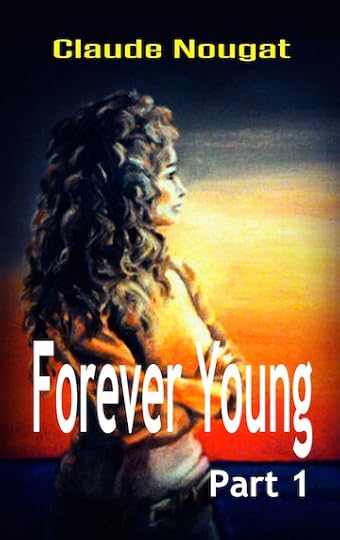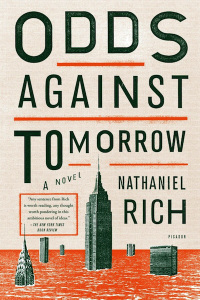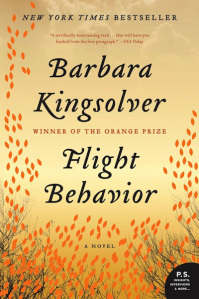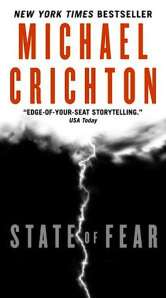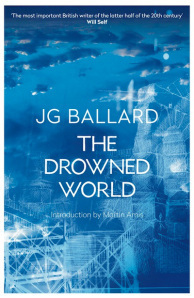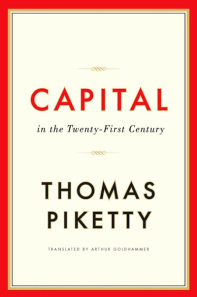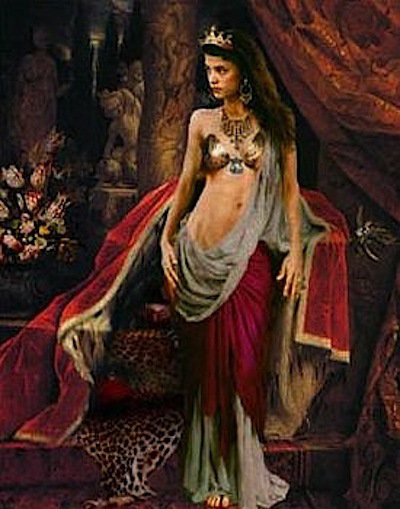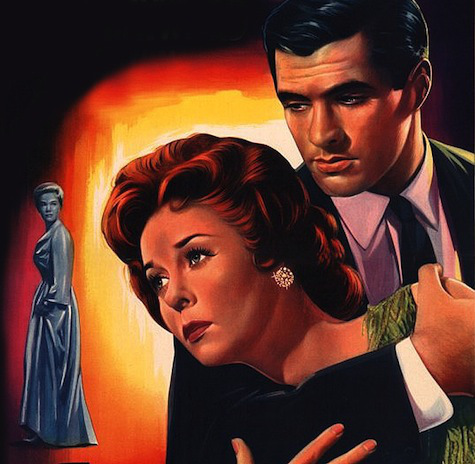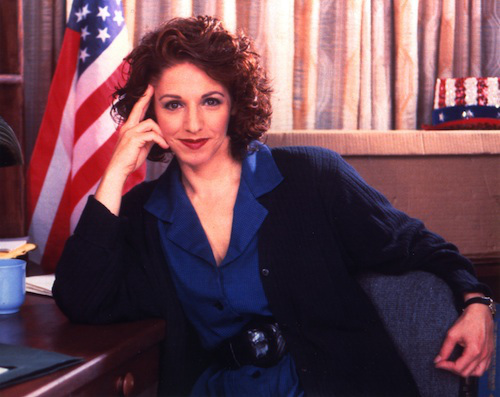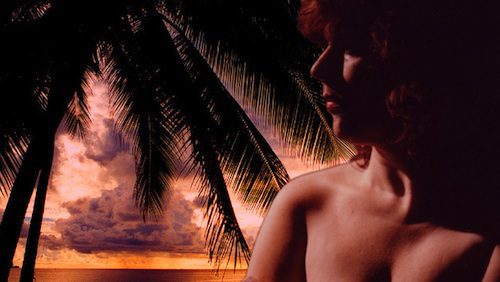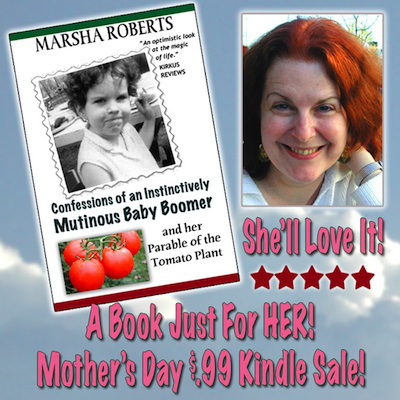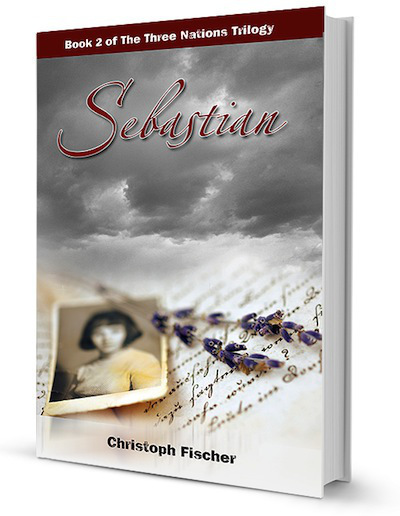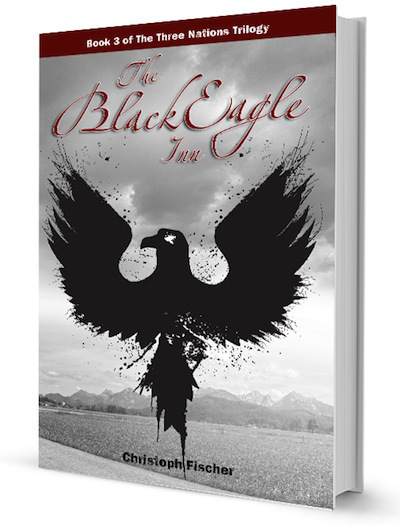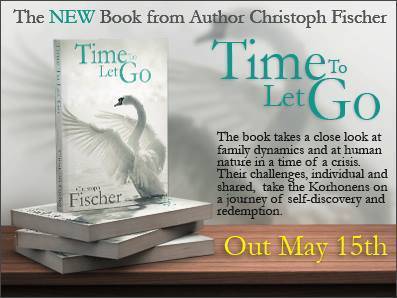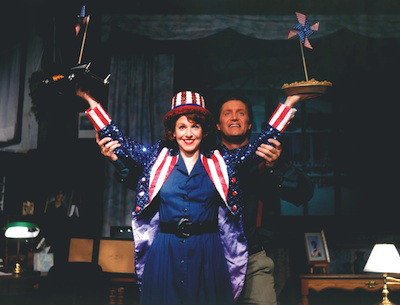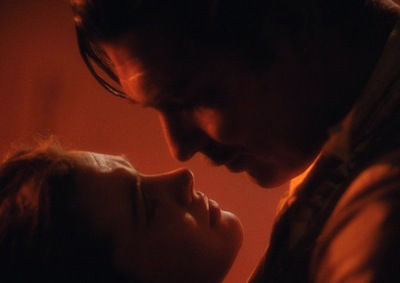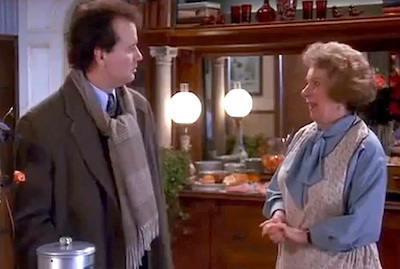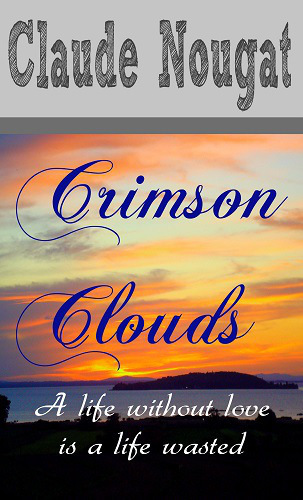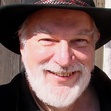Bob Rector's Blog, page 3
May 25, 2014
CLI-FI – A DISCUSSION WITH AUTHOR CLAUDE NOUGAT
Claude Nougat is an outstanding storyteller who has written several books that are among my favorites, including the Forever Young series and Crimson Clouds. But before becoming a writer, she had a very colorful career at the U.N. Born in Brussels, she is a true citizen of the world who has made her home in Europe, Africa, and the U.S. She currently resides in Italy with her husband. She is also an accomplished artist, as this cover art she created for Forever Young amply demonstrates.
Thanks for joining the discussion, Claude. I always enjoy talking to you. For a starter, pronouncing European names correctly (from the page) is difficult for many Americans, including me. Phonetically please tell the readers the correct pronunciation of your first and last names.
Don’t tell me you can’t pronounce “nougat”, such a wonderful sweet, my favorite at Christmas! Okay, here goes: the “au” in Claude is like in laud(atory) and not clod! Nougat sounds like noogah – don’t sound the “t”!
That’s easy enough. Okay, lets talk about Climate Fiction, AKA Cli-Fi It seems to be the hot new emerging genre for storytellers and, not surprising to me, you seem to have your fingers directly on its pulse. Your futuristic series Forever Young, while technically not Cli-Fi, certainly does have climate destruction as one of its central motivating themes. The earth is dying and the main characters are searching for a place ‘somewhere out there’ where they can hit the reset button. As an accomplished storyteller, what excites you about the new genre of Cli-Fi?
The built-in suspense! Some people insist that global warming is a fib, but who cares? From a storyteller standpoint, it’s a gift from a wrathful God. The setting of your story is under water (like in Nathaniel Rich’s Odds Against Tomorrow),
invaded by insects (like Barbara Kingsolver’s Flight Behavior). It’s just a way to turn the screw and get the best (or the worst) out of your characters…
Yes, it always comes back to good storytelling regardless of the genre. What do you feel are the most common misconceptions about cli-fi?
That it is a way to push the agenda of climate activists. I do think that’s a pity because it is a bona fidae literary genre in its own right, regardless of anyone’s views about global warming. Cli-fi is not a genre meant to push a political agenda. In my view, it shouldn’t be and indeed, it has shown that it can accomodate all kinds of views about climate change. At least one major cli-fi novel, Michael Crichton’s State of Fear was definitely on the side of climate change deniers. He describes climate activists as “eco-terrorists”. But the problem remains.
Climate activists hope that cli-fi, by pulling emotional strings in readers, will get people moving where cold, hard scientific facts about climate change leave them unmoved. Maybe so, but as I said, that’s a shame. I really don’t think you need that dimension as part of a definition of Cli-Fi to make it a viable genre, on the contrary.
My personal observation, especially as a filmmaker who has made many films concerning the environment, is that pollution control and effective conservation practices are very high on the public’s priority list, and has been for many decades. Few readers enjoy being lectured to, so what can storytellers do to keep Cli-Fi from becoming an agenda rant, yet still provide a strong narrative platform?
Any novel that tries to lecture is not a novel in my book. The message is implicit, it cannot be forced, it must come naturally, evolving out of the plot and NEVER be the subject of a speech by one of the characters – unless the plot demands it, of course.
Amen. Along those lines, what are the human elements of Cli-Fi that you think contribute to compelling storytelling?
Cli-fi puts characters in extreme situations.The characters are forced into a corner, what they do (or don’t do) next, will determine their survival. That brings out their qualities (eg. bravery, imagination) or their defects (cowardliness, stupidity), so expect to see some very strong characters!
A basic element of good storytelling is that the protagonist must have something vital at stake. Cli-Fi seems to offer this in spades. What are your thoughts about this?
What could be more vital than have one’s very life at stake? In a flood or a fire, you run the risk of losing everything you love, your house, your dearest possessions and of course your loved ones – not to mention your own life. But you have to realize that in cli-fi novels, this is not just any disaster: cli-fi is about the collapse of what one is used to. That feeling of familiarity is important, suspense in cli-fi works particularly well because it happens in a world that is familiar to the reader. The apocalypse is not something happening on a distant planet or in some unimaginable future. It is happening in the near-future – or at least at a time that we can imagine easily because it is similar to our own. That’s what makes it always so scarily plausible.
Well put, Claude. I don’t think it’s ever been explained so precisely. share with us your thoughts on the special ingredients of a Cli-Fi story that might not be found in other genres.
Special ingredients? Yes, there are specific features that you find across all Cli-Fi novels, above all, in the characters. In Cli-Fi novels – I’m only speaking of the good ones, of course – characters are never stereotypes, they are very “human”. For example, the young mother who lives in a poverty-stricken part of the Appalachian mountains in Barbara Kingsolver’s Cli-Fi novel, Flight Behavior, is incredibly real, you can identify with her, you worry along with her, you root for her. That is an essential “ingredient” of Cli-Fi, that feeling of familiarity. The novel’s setting is one of apocalyptic collapse, sure, but what makes Cli-Fi so special is that there’s something else at work here – not just sheer collapse and terror. The world in a Cli-Fi novel that is coming apart is a world you recognize, a world that you know intimately, and the people who struggle for survival are people that you know, they could be your friends, indeed they could be you. In Cli-Fi, Man is placed at the center of the plot.
Some might say that Climate Fiction is a contradictory term that undermines the important issue of climate control by labeling it as fiction. What are your thoughts on that?
Climate control? That is not a term I associate with climate fiction. Actually, the term “climate fiction” is a contraction or shortening of “climate change fiction” and it merely means fiction where climate change is given a major role, either primary, like in Ballard’s book, Drowned World, or secondary like in my own book, Forever Young. Incidentally, Ballard’s book was first published in 1962, well before the climate change controversy began!
Yes, that makes more sense to me. I know that climate and/or environmental destruction is something you personally feel very strongly about. It’s also something our generation has witnessed during our lifetimes. Contrast the world today to the world you knew as a child. Is it better, worse?
I know what you expect me to say, that it’s worse! Well, no, at the risk of surprising you, I don’t think it’s worse or better. It’s very, very different. I remember walking in downtown Brussels when I was a child, and there was nearly no traffic. Blissful peace! And you could walk into a restaurant without booking and always find a place. The economic rise of the middle class has meant that millions have today the kind of life I was lucky enough to have been born into. So that’s good, very good. But what worries me is something else: in the last 20 years, something strange happened. The rich got richer, the rest didn’t move up along with them. I noticed it but thought I was wrong, but now we’ve got statistical confirmation that this is indeed what is happening. The difference between the rich and poor is as wide today as it used to be back in the 1920s and at the time of the Robber Barons, and it’s growing. I’m not making this up, all you need to do is read Thomas Piketty’s book, Capital in the 21st Century,
he’s shaken Wall Street! It’s a huge book, a compilation that he put together over several years and with the help of many graduate students and fellow professors. And the verdict is in: the 99 Percent vs. the One Percent is not the result of some feverish imagination. And that is what has really changed since I was a kid! And to be honest, that’s a change I don’t like.
Couldn’t agree with you more. We absolutely have entered a new age of robber barons and the politicians and the news media totally ignore this fact because they are members of the One Percenters. I thought you addressed this brilliantly in your Forever Young series. Which leads me to my next question: Cli-Fi at first glance wouldn’t seem to offer opportunity for much humor. But a story without humor, even a drama, is pretty dull reading (I wrote a post about humor in drama on this blog). In your books you employ an almost Hitchcock-like dry humor that I love. What’s your thoughts about humor in Cli-Fi?
Hitchcock-like dry humor? Bob, I’m immensely flattered! Yes, humor is important, especially in the face of adversity. Drama is too and I believe cli-fi is well suited to provide a stage for both…
Do you see story and character development being different for Cli-Fi than other genres? If so, how?
No, sorry, I see no difference. These are stories of love and death and suspense, and the characters are tried to their utmost…Which is exactly what you want from any good story regardless of genre.
What unique storytelling opportunities does Cli-Fi provide?
Unique? Whenever you are dealing with the collapse of the familiar and well-known, you have a unique opportunity. I think Stephen King understood that very well: he is not dealing with cli-fi but with supernatural horror stories and he is always careful to start his novels with a highly familiar setting and everyday characters, people like you and me. This is how he draws you, the reader, in, and that’s how cli-fi authors also draw their readers in.
That’s a good comparison. Hitchcock was also a master of this. Take an ordinary guy, put him inexplicably in a corn field, and have a crop duster try to kill him. Totally bizarre way to kill someone but we don’t think about that. We’re too busy gasping and screaming. How about you? Do you have any Cli-Fi books in the works?
Yes, a sequel to my Forever Young. All my characters are waking up from hibernation 400 years later. Those who have opted for space travel will find themselves on the Forever Planet, one thousand light years away, a planet that is supposedly pristine and green the way Earth was before industrialization – yes, that’s the way it’s supposed to be but of course they’re in for big surprises! The others will wake up in an unfrozen Antarctica that looks a lot like the Japanese archipelago (that’s what’s said to be under all that ice!) and get ready to resettle Earth where life by now has gone extinct. How will they all fare? To find out, you’ll have to read “Forever Young, 400 Years later”!
Yes, I’m waiting impatiently to get my hands on it. What Cli-Fi books and/or authors do you admire the most?
I love Michael Crichton, though his State of Fear was perhaps not his best novel and I find Nathaniel Rich’s tale about New York under water highly compelling and extremely well-written – and of course, Barbara Kingsolver’s novel I just mentioned. But I have only started reading cli-fi, there are so many fascinating titles, you can find them on Goodreads or on the website run by a small Canadian press that features cli-fi novels with the intriguing sub-title “climate change in literature”.
Do you have additional comments you’d like to add about Cli-Fi?
A: One last remark: some people see cli-fi as a “literary” genre. For example, for the Christian Science Monitor, cli-fi is about a “dystopian present, as opposed to a dystopian future”. And they further admonish: “don’t call it science fiction. Cli-fi is literary fiction.” Well, maybe. Though I would argue that the best science fiction has always been literary, think Orwell’s 1984 or Aldous Huxley’s Brave New World, both scary, full of suspense and…literary masterpieces! To be honest, so far I don’t think cli-fi has produced the equivalent but it may very well do so one day!
And one last comment: thank you so much for having me on your wonderful blog, I’m honored!
Thank YOU, Claude. I always enjoy hearing your views on the craft of storytelling, which you have certainly mastered. Those of you interested in learning more about Claude and her books, please click here.

May 17, 2014
HONESTLY, SEX?
There’s a famous cartoon in the advertising world showing two half-inebriated account execs at a photo shoot for Alpo dog food. The object of the photo shoot? A buxom blonde on her knees, legs spread wide, holding a can of Alpo in front of her crotch. She wears a beaming 14 carat smile and nothing else. Right, spectacularly naked. One account exec says to the other, “Man, this is gonna sell a lot of dog food.”
One of the oldest axioms in advertising, movies, TV – and books – is “sell it with sex.”
Why?
Well, the obvious answer is because it works.
But it goes deeper than that. Humans are the horniest critters on the face of the earth. Yeah, all other creatures do it too, but not with the creative flair, intensity, and emotional explosiveness of us humans.
And no other female of any other species was quicker to discover the power behind sex to more devastating effect than the female human.
According to the Bible, it was the result of eating too many apples, but right from the git-go women were stamped as using their sexual allure to control the more physically dominant male. This dynamic became the driving force behind writing and painting and storytelling since humans first learned to communicate with one another.
Sex – raw, wild, and abandoned – is definitely the driving force behind my book Unthinkable Consequences, and the main reason it took me nearly twenty years to finish it.
Why?
I was raised in a Christian church. I attended three times a week, every week, all the way through high school. Ours was a New Testament church focused on the life and teachings of Christ. Consequently we didn’t get all the juicy stories that filled the Old Testament, many of them involving illicit, quite descriptive, sex. I had to find out about that by doing extra curricular work on my own. But the message was clear: sex equals sin. Women who used sex for gain were Jezebels (and look what happened to her!).
Ultimately the Bible stories had the reverse effect of what was intended. The ‘Thou Shalt Nots’ only made people more determined to do exactly the opposite (if it’s really that bad, I gotta try it). Yet the stigma remained.
So every time I picked up my manuscript for Unthinkable Consequences I would only make a little progress before I ran into the same brick wall. How do I deal with the sex scenes? Flustered, I would put the manuscript back on the shelf and continue with other projects.
No, I’m no prude. The normal raging hormones of teenhood got me past any ‘Thou Shall Nots’ concerning the opposite sex. Especially after I made the startling discovery that, contrary to what our parents told us, girls liked it as much as guys. Holy moley!
When I started working on Unthinkable Consequences, I didn’t set out to write a sex book. It was about a married woman who lived in a different time period in America, the 50s, who is having a mid-life crisis. Her only child is in college, her marriage is a sham, her life is empty and she doesn’t see it getting any better. A man enters her life who brings out long forgotten passions and they begin an illicit affair. In the 50s, those were the only kind of affairs there were, dramatized in the Susan Heyward movie Backstreet.
The driving force behind the affair in my book? Yep, sex. The all-consuming incendiary kind.
The wall I kept slamming up against was: how explicitly was I going to explore this relationship? Was I simply going to take it to a bursting point, do a ‘fade to black’ followed by a ‘fade-in: next morning’ and leave it to the readers do imagine what happened?
Oddly, the answer came in a family-oriented play I was writing, Letters From the Front. The story takes place during WWII and the lead female character, Katharine Hartgrove, has just discovered that her son is missing in action. In our research, many war moms were interviewed and asked what did they do upon getting this news. Every single one of then said the same thing: ‘I dropped to my knees and prayed for my son’s life.” In contemporary theater, a prayer scene is the kiss of death and I was reluctant to do it. But I decided to go for honesty, and wrote the scene. It became the play’s most powerful scene and I’m convinced is one of the prime reasons the show ran for fifteen years.
Honesty. What a concept. I decided I had to apply the same principal to Unthinkable Consequences. Uninhibited, fiery sex was what first brought Paula and Kurt together. They didn’t meet at a church social. Out of that urgent need, something much deeper gradually developed and a meaningful, committed love affair emerged. But the driving force was sex, just like in so many Biblical stories; sex so overpowering that Paula and Kurt could not resist its force. If I had not explored this force to its fullest, the story would have been, well, flaccid.
So does this mean I’m a strong advocate for explicit sex in books? No, that’s something every author has to decide for themselves. But I am a strong advocate of honesty in writing, even when it comes to sex. I believe readers pick up on it immediately. As a result you establish a trust bond with them. And as storytellers, isn’t that what we should always be trying to do?

May 9, 2014
HAPPY MOM’S DAY TO ALL YOU INDIE MOM AUTHORS!
THIS DAY IS FOR YOU INDIE MOM AUTHORS! SALUTE!
So many of our great indie writers are not only women, they’re moms too. We want to celebrate the enormous impact they’ve made in so many lives, in the great books they have written, and more importantly in our families.
If your an indie mom author and would like to participate in this celebration, please send pictures of yourself and your book cover (can be a promo picture like below if you prefer), a brief description – please, no more than 50 words – along with a link to your Amazon sell page (or whatever link you prefer), to rectorwriter@aol.com. I’ll do my best to get them all displayed, but if I can’t, it won’t be for lack of effort. So please cut me as much slack as you can, ladies.
My first shout-out goes to the mom/author that’s most important in my life, the Mutinous Boomer herself, Marsha Roberts and her moving and inspirational book “Confessions of a Instinctively Mutinous Baby Boomer.”

May 6, 2014
MY INTERVIEW WITH ACCOMPLISHED STORYTELLER CHRISTOPH FISCHER
Christoph Fischer was born in Germany, near the Austrian border, as the son of a Sudeten-German father and a Bavarian mother. Not a full local in the eyes and ears of his peers he developed an ambiguous sense of belonging and home in Bavaria. He moved to Hamburg in pursuit of his studies and to lead a life of literary indulgence. After a few years he moved on to the UK where he now lives in a small hamlet, not far from Bath. He and his partner have three Labradoodles to complete their family.
Christoph worked for the British Film Institute, in Libraries, Museums and for an airline. ‘The Luck of The Weissensteiners’ was published in November 2012; ‘Sebastian’ in May 2013 and ‘The Black Eagle Inn’ in October 2013. He has written several other novels which are in the later stages of editing and finalization. His newest novel, Time To Let Go, will be released May 15.
As you will see, Christoph was both thoughtful and candid when responding to my questions. I hope you’ll find the exchange as stimulating as I did.
Christoph, I’ve had the pleasure of reading two of your novels, ‘The Luck of the Weissensteiners’ and ‘Time to Let Go’, and even though they are set in different time periods and cultures, I was struck by their thematic similarities. Both are rich family sagas examining complex relationships. What motivated you to write these stories?
My mother’s side of the family were good Catholics and all of them had plenty of children, while my father’s side only had few and they were separated by the Iron Curtain. I experienced a vast contrast of family relationships and I guess that has made me very interested in and aware of family dynamics.
Yes, that reverberates in your writing. Your books have a sacred respect for the life force within us all. Don’t want to give too much away, but there is a scene in one of your books that brilliantly illustrates this when a character commits suicide and the response by his friends is not pity but disgust that he threw this most precious gift away while they were all fighting daily to preserve it. How did you go about creating this powerful scene?
Thank you very much. I felt some restlessness in said character and admittedly the circumstances for him and his surroundings had been very unnerving. It was inevitable that someone/something had to break under so much pressure, so I let him give in to his urge. His choice, but the tragedy is always for the others, left behind. In this case the question was: how could the others sustain their morale, if not by judging him? Compared to many of his contemporaries he was extremely lucky, yet didn’t see it. It probably reflects on my own opinion about suicide. Unless you have a terminal disease I believe it is a grave mistake. There is always something to live for at the other end of the tunnel.
What attracted you to writing?
I came to writing purely by chance. I had an idea and spare time to dedicate to the ‘experiment’. I only meant to write down a short story but it turned into a full novel – a hobby was born. Two years later I decided to publish one of the books. Writing for me is escapism, an intellectual exercise and emotional inner healing and all of it is important and helps me grow as a person.
If you gave yourself a pen name that none of your friends or associates knew you by, what kind of book would you like to write?
I would really like to try and write a comedy. I would love it if I could make people laugh with my stories but it just doesn’t seem to come naturally to me. I seem to be more comfortable with drama, so a pen name for any comedy would be a good idea.
Here’s hoping you give it a try, Woody Von Bustergutt. Meanwhile, describe Christoph Fischer to us when he is writing.
He is very enthusiastic and excitable and writes away feverishly on his first drafts, forgets to eat and runs late for appointments: just one more paragraph, just one more dialogue, just finish that train of thought; then he re-writes the drafts, turns away in self-doubt and comes back with new ideas and fresh perspectives. My partner gave me a cuddly toy in the shape of Oscar the Grouch from “Sesame Street” which says “Go Away”. That sums it up perfectly.
Maybe you should collaborate with your partner on that comedy. What writers have inspired or influenced you most and why?
Christos Tsiolkas and “The Slap” was a great influence on me with his great use of varying perspectives. My first novel was told in chapters each of which focused on a different character. I have changed that now, but it was a fantastic exercise to get into the heads of all people I write about instead of using them as plot details. Lionel Shriver has a sharp and cutting writing style and includes some uncompromising and well observed details. That has given me confidence to be very honest and to write more controversial characters that sometimes change their minds, just like people in real life do.
What person has influenced your life most and why?
My German Literature teacher from 8th grade had a lot of confidence in me and encouraged me to write. My aunt, who is suffering from Alzheimer’s disease and who is a little bit like Biddy in “Time to Let Go”, had a wonderfully positive and life affirmative attitude. I am nowhere near that sadly, but her attitude stays with me to this day. When I am down, I try to picture what she would do and it often gets me out of my misery.
Yes, when I was reading Time To Let Go, it was very clear Biddy was based on someone near and dear. How do you feel about the world of indie writing/publishing in its current state?
I feel very good about it. Self-publishing is giving the big players a run for their money. Many smaller publishing houses ask the writer to do much of the promotional work themselves, so I am quite happy to be doing it all alone. I feel there is more recognition amongst readers. Publishers and agents seem to be flooded with books, but the readers seem to find us, so we are cutting out some middle men. You are in film, you must remember how the Independent Films challenged Hollywood and how their success has positively shaped the cinema landscape and even the kind of films produced. I hope for a similar effect in book publishing. There are many deserving authors out there.
True. The indie film market exploded when a wide diversity of markets suddenly emerged, from cable TV to home video to the internet, along with the technology to support it. It concerns me that currently one corporate giant dominates and controls the indie publishing world. How do you think indie publishing could be improved?
We probably need a little more organisation, indie awards and indie book festivals to showcase our work. E-magazines and other tools to get the word about us to the readers need to grow in numbers. Recently, at The London Book Fair a woman told me that the agents present only wanted to speak to authors that were already self-published. That is a sign that we are getting our foot in the door and are making progress.
What other fields or professions did you work in before becoming a writer?
I am a trained librarian, I worked for the British Film Institute in the Information and Research department and also at the Film Festival Office. I spent the last 15 years working for an airline.
I worked for an airline as well – a ramp rat, but not nearly as long. It illustrates the winding paths many of us take to becoming storytellers. Am I right in assuming your airline experience was the foundation for the lead character in Time To Let Go?
How very interesting. Yes, my airline experience was the foundation for the lead character, although not for the plot.
Tell us a little about how you formulate your plots.
With the historical books I had a non-negotiable time frame of events and a basic idea for the plot. In “Time to Let Go” I also had a battle plan for key scenes and major events. However, as I write the story a lot of what I had in mind suddenly becomes cliche or predictable and the characters start having their own ideas. So I adjust and let the plot develop dynamically. It is much more fun that way, but incredibly difficult to find inconsistencies in the story later on.
How do you strike a balance between maintaining historical accuracy and developing a compelling storyline and characters?
Historical accuracy takes absolute priority. If the storyline does not fit with the facts then it has to be dropped or altered. Occasionally a plot hole or error in my planning can be a blessing in disguise as it challenges me to think: what would the character do now?
Are your characters drawn from life, fabricated from the needs of the story, or developed in some other manner?
The key characters in my historical novels are a little bit of both: Greta Weissensteiner is based in parts on the life of my grandmother and how I imagined her and her sister’s life during that period, but the sisters took on their own character that was different from my family, so they are also in parts at least fabricated from an idea for my story. I’d like to think that none of them are created to fit the story, but many grow with the story as it unfolds for us all. I begin to picture them as I write them and often find that I modelled them on people I know. I do that more than I thought. It took my sister to point some of these occasions out to me and I had to admit that she was right.
Greta is a terrific character, so strong, yet big hearted. So many times I wanted to give her a bear hug and tell her everything’s gonna be all right. So, of all the characters you’ve created, which is your favorite and why?
Jonah Weissensteiner is a tribute to my father, whom I lost almost twenty years ago. His jovial, artistic and liberal nature was a light in my childhood and I tried to let that live on in this character. Like Jonah my father was a widower, so I let him find love again and be witty and gregarious.
Loved Jonah, too. He hammered home the message that family is most important of all. What’s the funniest or most bizarre thing that’s happened to you as a writer?
All of my books have gay characters in them. Non sexual supporting cast mainly who just happen to be gay and illustrate some points but do not take over the story. An Amazon reviewer accused me of promoting homosexuality. Oddly enough, the book in question features a not very likeable, selfish lesbian couple.
Talk to us a little about writing good dialogue.
That is difficult and I am still learning the craft. Realistic can be equally boring and mundane but too fancy can be artificial and unconvincing. As a reader, I want a good compromise. Lifelike dialogue does often take too long and does not come to the point of a conversation fast enough. Since reading one of your interviews, I am painfully aware of the ‘remote control’ effect of TV: people might switch channels if I don’t keep it interesting. I have a personal dislike of writing in ‘dialect’. It is realistic but it takes me out of the experience. Sharp, witty and fast in my opinion is best.
If money was no object, what would you do with your life beside write?
If there were a lot of money I would like to run a charity: a caring facility or an orphanage in Africa. There are so many good causes that need our attention. Theatre work would also interest me.
Glad to hear that. I think playwriting is not fully appreciated in the writing world. What has been your most disappointing experience as a writer?
I would have to say a personal attack on a dear writer friend that was carried out by trolls. It was undeserved, negative attention by people who had probably not even read the book. There was a bias against self-published books in the reviews that was not justified by the work in question at all. All of her hard effort in marketing her wonderful book was almost killed in an instant by thoughtless and hateful people with too much time on their hands. It was disheartening.
Do you think there is anything that could or should be done by Amazon, Goodreads, Facebook, etc. to control anonymous ‘drive-by’ or malicious postings, or reviews by people who have clearly not read the book?
I know of several postings and reviews that were taken down after being flagged or complained about by the authors or other readers. It shows that, at least in principle, the companies in question are taking measures. I wish they would devote more resources to this but their business models run on ‘cheapest offer’ (Amazon) or free services (FB and GR), so I doubt that this will ever happen. I hope someone clever will come up with a good solution, but I can’t think of any, despite having given it a lot of thought.
What do you think are the biggest pitfalls for aspiring writers?
There are so many, it depends on the individual and their knowledge of their strengths and weaknesses: lack of confidence, lack of research, lack of editing, lack of appropriate marketing…. Currently, I am thinking about the balance between letting your book go and giving it just one more re-write; the longer you wait the more afraid you get, but if you let the book go too soon it backfires from the errors that you let slip in creating an impression of poor work.
As an indy writer/publisher, what marketing techniques have worked best for you?
I notice that most of my sales seem related to my twitter activity. If I stop tweeting, my sales drop significantly. Giveaways have led to good “follow on sales”, so they were worth the effort. As avid reader and ‘book consumer’, I respond better to soft sales rather than hard sales. I try to do the same in my marketing and I believe it helps, although this is not based on statistics or evidence.
Is it true you never sleep?
It is almost true.
Thank you, Christoph. I’ve enjoyed this exchange immensely and appreciate the time and effort you put into participating. Best of luck on the roll-out of Time To Let Go. I’ve already read it and written a 5-star review, which can be read by clicking here.

April 12, 2014
WHAT’S SO FUNNY ABOUT WAR?
The obvious answer is, nothing. Yet audiences laugh all through my play Letters From the Front, set during World War II.
No, I wasn’t being frivolous or disrespectful when I wrote it. The primary themes of the show are what you might expect – separation, loss, fear, loneliness. The primary theme is about the fragile and precious nature of life. So what’s so funny about that?
Again, nothing. But in our darkest or most frightening moments we humans turn to humor as a pressure-relief valve – like laughing on a roller coaster when you’re sure you’re about to die. That’s what humor is in drama, a pressure-relief valve. Gotta have it or the drama explodes. Not a pretty sight.
Long ago in a galaxy far, far away I roadshowed Gone With the Wind to small towns that did not have a movie theater (don’t ask, long story). In the process I saw this four hour film over 100 times. And was enthralled every time, fascinated by its sheer storytelling mastery, thanks to the genius of David O. Selznick. There were others like him: Walt Disney, Alfred Hitchcock, Frank Capra, all master storytellers who understood how important humor was within a drama.
Disney, in fact, had a motto: for every laugh, a tear; for every tear a laugh. The more intense the drama, the sharper the humor must be. Gone With the Wind dramatizes the fall of the Old South, an entire culture collapsing, and with it, people’s lives. The film is a carefully woven tapestry of tearful, terrifying, and poignant scenes. Yet each of them is offset with pressure relieving comedy scenes that bring howls of laughter from the audience. Without those scenes, this classic film would be unbearable to watch.
When I started writing scripts for film and TV, I never forgot these lessons. Because of the subject matter, Letters From the Front was a difficult play to write. The horrors of WWII are well established in the audiences minds even before the curtain goes up, so I often relied on the pressure relief of humor to make the story palatable. Judging by audience response at hundreds of performances, it worked. Thank you Mr. Selznick, Mr. Disney, Mr. Capra. What wonderful teachers you were.
Humor. It’s one of the most powerful tools the dramatist has in his/her arsenal. Why is it then that so many are reluctant to use it? A character with humor is endearing and human. One without it is tedious and wooden. A narrow escape from death is given greater punch if accented with humor.
I’m not suggesting that a character pause in the middle of a tensely dramatic scene and break into stand-up comedy. That’s called gags and they’re usually inappropriate in a drama. Especially sight gags, which are the domain of the screen and usually die on the page. For humor to work in drama it has to have a human element. And it needs to reflect the main themes of the story.
In Gone With the Wind Rhett abandons Scarlett on the open road with Yankees swarming all around so that he can join what’s left of the Rebels. Scarlett says heatedly, “You, sir, are no gentleman!” To which Rhett replies, “A minor point at such a time.” Funny. Human. And directly reflective of the movie’s theme. That kind of irony is high on the list of what makes humor work.
Surprise is even higher. When a character says or does something opposite of what the reader/audience expects, it usually elicits a laugh, or at least a grin. In Groundhog Day Bill Murray asks the owner of the bed-and-breakfast, “Do you ever have deja vu?” She replies, “I don’t know, I’ll check with the kitchen.” Surprise. Funny. And again, directly reflective of the movie’s theme.
The examples I’ve used are from movies, not books (Gone With the Wind was based on a book) but the principal is the same. The elements of good storytelling are the same whether on screen or page. My book Unthinkable Consequences is a tense romantic thriller. Inherently it is a melodrama. To make the characters and story more human, I tried to offset the melodrama by generous helpings of humor. Those of you who have read it can tell me if I succeeded.
Okay, that’s my two cents worth. I would love to hear your comments on how important you think humor is to a dramatic work, whether it’s a thriller, love story, adventure, or literary novel.

April 6, 2014
MY INTERVIEW WITH MULTI-TALENTED CLAUDE NOUGAT
It is with great pleasure that I introduce to you the very talented author/artist Claude Nougat. Not only is she a gifted storyteller, she also provided invaluable editing advice to me while I was in final preparation of my manuscript for Unthinkable Consequences.
Claude you are an accomplished author with several books in release, but before we start discussing your word-craft, tell us a little about your background.
I guess you could say I’m a world citizen, I really don’t have roots anywhere. Born in Belgium, raised in Sweden, Egypt, Russia, France, Colombia and finally reaching the US when I was 17 – picking up on the way many languages and forgetting them in turn. What’s left is French, Italian, Spanish and of course English that I learned attending classes at the American Embassy in Moscow. My formative years as an intellectual took place in America, at Columbia U. I graduated in economics not because I particularly liked the subject but because my father felt that studying anything else would be a “waste of time” (what I really wanted to study was paleontology, I love old bones…) Once out of school, I travelled the world over for the United Nations, giving management advice to aid projects in difficulty, a fantastic job. It put me in touch with so many different people – a very enriching and full experience that lasted 25 years till I retired in 2003.
I happen to know that you are also a very talented painter. Do you find that it compliments your skills as a writer? If so, how?
Painting and writing seem to call on diametrically opposed segments of the brain: the mode of concentration is totally different – painting is more intuitive, it sort of “happens” on the blank canvas. You could argue that a book also happens on a blank page, but it is a long haul, not like a painting that can be done in a few hours. A book can take years in the making – my first one (now out as “Luna Rising”, a Sicilian family saga) took 30 years in the making, from the first moment I thought of it (when I walked into a dusty men’s club in Sicily full of old men playing backgammon – they all looked like ghosts) to its most recent incarnation (now out in a brand new edition). A painting only takes a few days, in that sense, a painting is more like a short story or a poem…
Two of your works that I truly enjoyed are Crimson Clouds and Forever Young. Give us a brief description of each.
So happy you enjoyed them! “Crimson Clouds” is about the anxieties of restarting one’s life after retirement. Robert, the protagonist, in his early 60s, a brilliant manager, he’s still young and attractive and has a lovely and much younger wife who’s carved out her own success as a dealer of contemporary art. But when he decides to renew with a childhood dream of being an artist and produces paintings that are dreadfully academic (a little like my own!), his wife is horrified. They fight over art but what is at stake is their marriage and they separate. He goes to Italy, has some love affairs but his wife wants to save their marriage and comes back to him…
“Forever Young” is set 200 years from now, when the Earth is dying and only the ultra rich, who can afford the costly and exclusive Age Prevention Program (APP), enjoy a perfect life in their gated communities, looking young till the day they drop dead. The book has three major characters, forming a love triangle: Jamie, a young investigative journalist from the World and US Post (the New York Times and Huffington Post rolled into one), his partner Lizzie, a professional golf player (she’s a descendent of the mythical Tiger Woods), and Alice, a beautiful Swiss nurse and an outsider: she yearns to join the APP and is in love with Jamie. There are two options to survive the extinction of life on Earth, both opened only to APP members: fly to another pristine planet similar to Earth or take refuge in Antarctica, the last virgin continent, and wait for the end to come, getting ready to re-settle the Earth afterwards. What will our threesome do?
Why do you write?
Tough question. I wouldn’t be me if I didn’t write!
What appeals to you most about crafting a story?
The suspense. Digging into another person’s head. Figuring what happens next. If I know ahead what’s going to happen in my story, I don’t feel like writing it at all. I’m my own first reader!
What writers have inspired or influenced you most and why?
All the classics, especially the Russians – I consider Gorki’s Dead Souls an absolute masterpiece, it’s got everything I love, the characters, the social comments, the way a light is thrown on society – much more effective than any sociological critical essay. The same can be said of Bulgakov’s The Master and Marguerite: literally insane fantasy and the most effective and devastating comment ever made about Communism and men’s tendency to fall into dictatorship. But I also like the French, Voltaire’s Candide and Camus’ novels for the same reason I like Gorki. Also the English, in particular the sci-fi masters, Aldous Huxley and Orwell though this is an area where there are lots of remarkable American writers too, from Frederik Pohl to Philip K. Dick and most recently, Hugh Howey. Actually, there are lots of amazing writers alive today from Penelope Lively to William Boyd, David Lodge, Louis Begley, Deborah Moggach, Tracy Chevalier, Siri Hustvedt…
If your writing was music, what would it sound like?
Good God, I have no idea! I guess, cool jazz…
What comes first for you, plot or character, and why?
Character, no question about it. The plot comes next, it develops out of a character’s strengths and weaknesses, yearnings and fears. The setting is often what challenges the characters and pushes them to their (internal) extremes but the challenges also come from relationships between characters.
Tell us a little about how you formulate your plots.
I don’t formulate them at all. I have a general idea and jump in. As I write, it all unfolds in front of my eyes like a film.
Talk a little about themes. At what point in your writing process do you address them?
Never. I don’t believe in writing with a theory in mind that you want to develop. The themes come naturally as a side-effect of the plot and characters. Forever Young really deals with major issues threatening life on earth but I hope that doesn’t show. The intention is to entertain, not teach or preach.
Tell us a little about how you create your characters.
Observation. People around me are warned! But most of all, I draw characters from my own inner self. Whatever looks logical for the character, given who he/she is, gets written down. The characters dictate the creation, not the other way around. I’m sure you know what I mean, because I can see that’s how you create your characters too.
Which characters have you created that are most vivid to you, or continue to reside in your heart?
The young man in Luna Rising, he is stuck in his life, he hates it and he’s trying to get out of it. Obstacles on his way, coming from the ghosts in his family, are so numerous that he is forced to become a hero or…die! Contrary to a lot of my readers who disliked Kay, the wife in Crimson Clouds, I actually love her. That’s why I rewrote Crimson Clouds (now the second edition of what was originally called A Hook in the Sky). I wanted to make it clear that for her, winning back her husband is a huge undertaking and he’s constantly cutting her down. So I added whole sections to the book giving her side of the story. And I also love Alice in Forever Young: she’s the outsider who should be in, but is constantly left out. But that doesn’t discourage her, she’s a brave, determined woman – at any rate, that’s how I think of her and painted her (at your behest!) and I’m thinking of using that portrait as a book cover…
You definitely should! Talk to us a little about writing good dialogue.
Bob, I think that’s where you’re the master! In any case, I follow your system: see the people talk, hear them talk (go in a trance if necessary!), take time to speak the dialogue out loud, and you’ll hear it when it’s too long or repetitive or useless. Then, there’s only one solution for it: cut, cut, cut!
I agree. For every line of dialogue that makes it on the page, I probably toss a dozen more. Do you have personal, social, or political convictions that worm their way into your writing? If so, give an example.
I suppose I do though I try very hard to not let them “worm” their way in. Yes, because they can be truly worms that punch holes in the plot. I am convinced that much of contemporary art is not good and I guess that worked its way into Crimson Clouds (mainly in the form of fights between Robert and the women in his life who are all contemporary art fans). Likewise, I’m convinced that income inequality is a major evil of our time and it’s become one of the premises of the brave new world you find in Forever Young.
What do you find most difficult about the craft of storytelling?
Avoid repetition. Not talk down to the reader. Realize that they’re bright and don’t need to be either lectured to or have to be told anything twice. So again, I cut!
Amen! Talk to us about your greatest “Ah-ha!” moment when you read over a passage or chapter and said, “Wow, that’s really good!”
Are you speaking of my own work? I don’t have such moments, ever, when it comes to my own writing! Other people’s writing, yes. Right now I’m into Siri Hustvedt The Blazing World and there are a fantastic succession of such awe-inspiring moments! Just to quote one (out of a dozen or more) when she describes the protagonist’s father: “Harriet’s father was physically awkward, prone to self-conscious pats of his daughter’s arm or quick, hard hugs that were more like speeding collisions than expressions of affection…He liked to expound to us on philosophy…He believed in tolerance and academic freedom…But it is not what is said that makes us who we are. More often it is what remains unspoken.” That last sentence is fantastic!
Many writers create different working environments or conditions that help them focus on the job at hand. Tell us about yours.
Nope, sorry to disappoint. No special environment. I work wherever and whenever I can, in between womanly tasks like cooking or making beds. I leave the gardening to my husband!
We’re in agreement, although I don’t make beds. Don’t see the point. What frustrates you most about being a writer?
The marketing. I hate book promotion but it’s a necessity – especially in today’s environment, with millions of books available on Amazon with just a computer click.
Yes, I think most writers would agree with you on this. Do you think male and female writers approach storytelling differently? If so, how?
I never thought it was a gender thing. For me, it’s not and I don’t believe there’s any gender determined difference. Character-wise, sure. I should think we’re all different in the way we approach work, whether it’s writing, painting, music or economic analysis.
If a young person just starting their working life said to you they wanted to be a writer, knowing what you know now, what would you say to them?
Hey, that’s a tricky question! I don’t think of myself as a guru… On the basis of my own experience, I would say, be ready for the long haul, chances are that your first book won’t make a ripple. So don’t get bitter about it, it happens to all of us. Be ready to befriend your competition. Actually, a lot of writers see other writers as rivals and that’s totally wrong. Writers are terribly different from one another, there’s space for everybody, and we can help each other!
Great advice, Claude. As always, I enjoy your stimulating views on writing. Thank you for participating.
Check out Ms. Nougat’s Amazon Author’s page at: http://www.amazon.com/Claude-Nougat/e/B0054DBGLK/ref=sr_tc_2_0?qid=1396718806&sr=1-2-ent — visit her blog at: http://claudenougat.blogspot.com/
[contact-form]

April 3, 2014
INTERVIEW OF YOURS TRULY BY P. C. ZICK
AUTHOR WEDNESDAY at http://pczick.com/
Posted on April 2, 2014 by P. C. Zick
Welcome to Author Wednesday. Today I’m pleased to introduce, Bob Rector, whose book Unthinkable Consequences is a fast-paced thriller with lots of sensual romance. I’ll be reviewing the book on Book Review Friday so I won’t say much more than the book was a wonderful surprise.
Welcome, Bob. It’s pleasure to interview you today. Let’s start with my favorite question for my favorite authors. When were you first able to call yourself a “writer” or “author?”
From the first day I started working in TV in March of 1970. I was hired to write, direct, shoot and edit music film shorts (they weren’t called videos back then) for pop artists of the time – a one-man band. I had to deliver a finished 2-12/ to 3-1/2 minute film every day so I learned how to formulate plots and characters fast. Usually the scripts were hand written on notebook paper. I made approximately 100 films for the shows “Now Explosion,” and “Music Connection,” and learned more about storytelling during that time than if I’d taken a college writing course.
You learn quickly on that type of deadline. I know I did as a reporter, and it wasn’t nearly as demanding as writing shows. Do you have a particular theme in your writing?
If I gave thought to messages or themes before I started writing, I’d never get anything written. Most of my writing has been assignment based, but when it’s not, it comes from a story on the news, or an incident I personally witnessed, or a comment somebody made. It plants a seed in my imagination and I’m off and running. As the work develops, messages and themes occur naturally.
Who has most influenced your writing?
In my genre, Raymond Chandler and his disciple John D. MacDonald. Their dialogue sparkled, their writing style was clean and sparse, and their characters not only had muscles and beauty, but heart too. You could also throw in Erle Stanley Gardner.
Do all your books have a common theme or thread?
I guess the most common theme in my work is redemption. Stories are usually about conflict and that usually arises from people not being very nice to each other. At a certain point in the story, they have to become aware of that then seek, and hopefully achieve, redemption. It makes us root for them. If they don’t make an attempt, they’re pretty shallow characters.
That’s always a favorite of mine. Do you have a favorite character that you created?
Paula, the main character in Unthinkable Consequences, is my favorite. I didn’t know if I could immerse myself into a female character to the extent required. This is not meant to be derogatory in any way. To state the obvious, men and women think and act differently. I wanted Paula to be completely believable, especially to female readers. It was scary, but also fun, getting into her head. Luckily I had many close gal friends, my wife first and foremost, who were willing to drop the veil and help me keep Paula honest in her femaleness.
I’m sure she was fun to create. You did a remarkable job of portraying this trapped canary in the world of the 1950s of Palm Beach. Now that I’ve mentioned Florida, how does setting play a role in your books?
Having worked in visual mediums most of my life, setting, or location, is extremely important to me. Unthinkable Consequences takes place in South Florida in the late 1950s, and it literally could not have taken place anywhere else. I know, I tried. I think setting should visually (even if it’s in the mind) reflect, and often amplify, the action, mood, and passions of the story. I needed a place that was still somewhat wild and primitive, hot and sultry. The Keys provided that.
Yes, I agree. What kinds of techniques do you like to use in your writing?
I’m big on pacing and narrative thrust, probably because of my years working in film. And I work hard not to let the reader get ahead of me. In TV, we were always aware of the viewer sitting there with the remote in his/her hand. Lose their interest and their off to another channel. I never forgot that and I think writers should keep it in mind too. Imagine that your reader has a remote in their hand.
What’s the best thing said about one of your books by a reviewer?
When Claude Nougat reviewed my book, she said, “He has produced a thriller-romance that is not merely an unusual love story but a deep excursion into the psyche of one very tormented woman – something of an exploit for a male writer. The only other writer who manages to portray a woman’s anxieties as brilliantly (that I know of) is Flaubert. But what Bob Rector has done, is give us a thoroughly modern version of Madame Bovary. His Paula is a fascinating character – and equally explosive.”
I can see why that would bring some cheer to the writer’s heart. How did you choose the title and has it been the title from the beginning?
No. The only project I’ve ever worked on that the title never changed is my play “Letters From The Front” – and if I could change it, I would, but it’s been out there too long. Before my book became Unthinkable Consequences, it was “Pathetique,” “Wages of Love,” “Into the Fire,” and “The Woman Who Did Just As She Pleased.” As the manuscript developed, none of these seemed exactly right. It was my wife, Marsha Roberts, who came up with Unthinkable Consequences, and I knew it was right the minute she said it.
It’s a great title and very appropriate. How long do you estimate it took you to take the book from an idea to a finished, published?
About twenty years. Seriously. It started as a film project but it was during a very busy time in our lives. We were building a business and raising a family, so the project kept getting shoved onto the back burner. Plus finding the money to produce it was out of our reach. At a certain point I decided to convert it into a novel and finally about 8 months ago I found time to attack it full time.
I think only another writer can understand how a book can be in the musing and fuming stage for years. I’m glad you found the time to get this one down on paper. Is the book traditionally or self-published?
It’s self published. If that option wasn’t available, I probably wouldn’t have spent the time completing it. Having been in the entertainment business all my life, I know all about ‘gate keepers.’ My wife had self published Confessions of an Instinctively Mutinous Baby Boomer a little earlier and had significant success.
Two writers in one family? That’s quite an accomplishment. What is the message conveyed in your book?
Be careful what you wish for.
What is the best thing someone could say about this book?
That they thoroughly enjoyed reading it and loved the characters. That’s the equivalent of a ‘standing-o’ in theater.
Let’s go back twenty years. How was it conceived in your imagination?
It was an observation brought about by sexual awareness. I was twelve in 1959, the same year that Unthinkable Consequences takes place, living in hot, sultry Florida. I began to notice an undercurrent among women in the their late thirties, early forties, mostly mothers of my friends who were wives of successful businessmen, professionals, professors, etc. They had everything – nice homes, clothes, all the latest household gadgets, because it said their husbands were doing very well. But many of these women were restless and seemed (to me) to be pacing about like lionesses in gilded cages. There was a sexual tension to it that I was just starting to pick up on. But this was 1959, a very different America, especially for women. My imagination went to work and I wondered what would happen to one of these women if they made a break for it. It percolated in my mind for many years and finally started finding its way onto paper, as a script at first, than as a book.
You captured that time and feeling and setting very well. What other type of research did you do in the writing of this book?
Extensive. I packed up the family and drove down to Palm Beach and Key Largo. I took tons of photos, visited with Chambers of Commerce and Visitor Centers, scouted locations even to determining where Paula would shop for groceries, and just talked to locals, trying to pick up their colloquialisms. And of course, I spent hundreds of hours in libraries and doing internet searches. I wanted every detail to be right. To me, that’s what brings a story to life.
Who or what is the antagonist in your book?
A thug named Red, a former fighting partner of the lead male character, Kurt. Bad guys are the most fun to write because you can pull out all the stops.
Yes, they are. Without giving us a spoiler, tell us a little bit about your favorite scene in this book.
Paula, the main character, has a major confrontation with her son Billie who has just started college and is spoiled and self centered as only a teenager can be. Paula goes into the meeting with high hopes of reestablishing a bond with her son, but it quickly falls apart, leaving her devastated. What Paula does to redeem herself with him is so sacrificial that readers can only yell, “No! No! Don’t do it.”
I agree. In some ways, I hated that scene because I surmised what he might do, and I just wanted her to drive away (in her own car!). What else do you want readers to know about your book?
That it’s for you, not me. I hope you enjoy reading it as much as I enjoyed writing it.
Then I thank you. You accomplished your goal. Do you listen to music while you’re writing?
I’ve never been able to listen to music and write. Too distracting.
Where do you write?
As long as I have access to a keyboard attached to a computer, I don’t much care where I write. Marsha and I spent many decades on the road so I learned to crank out scripts wherever we were. When battery operated laptop computers arrived, I thought I’d died and gone to heaven. Now I could even write in the car during those long, five or six hundred mile days.
How does your immediate family feel about your writing life?
They’re very supportive. It’s all they’ve ever known me to do.
What do you do during your down time?
I don’t have down time because I don’t work. I’ve never worked. I don’t understand the concept.
That’s good! I heard someone say it’s only work when you’d rather be doing something else. What book are you reading right now?
The Crystal Cave by Mary Stewart – for perhaps the 4th or 5th time. It makes me aware of the magic that is always around us, if we just know how to get in touch with it.
I love that book, but haven’t read it in many years. Do you set your books in the place you live?
I did once, for a screenplay that was never produced, but it was more for expediency than anything else.
One last question, if a movie was made about your success as a writer, who would play you?
Well it would have to be George Clooney, wouldn’t it?
Certainly. I don’t know why I asked! It’s been delightful having you here today, Bob. I hope you’re working on something else these days.
[contact-form]
Links to books and social media sites
CreateSpace: https://www.createspace.com/
Amazon: http://goo.gl/mELWHe
Goodreads: https://www.goodreads.com/book/show/18710633-unthinkable-consequences
Facebook author page: https://www.facebook.com/RectorWriter
Twitter: https://twitter.com/RectorWriter
Website: http://www.unthinkableconsequences.com/

March 30, 2014
IT’S ALL ABOUT STORYTELLING
During the 40+ years of my career in the storytelling business I have worked in motion pictures (film, TV and video), theater (legitimate and corporate), and novels. Each has its own distinctive formats, rules, advantages and disadvantages, but at the core of them all is the art of spinning a well crafted yarn.
Oddly enough, the occupation that taught me the most about storytelling was film editing. Sound baffling? Maybe not if you consider that many of our finest movie makers started out as film editors: David Lean (Lawrence of Arabia), Robert Wise (West Side Story), and John Sturges (The Great Escape), to name just a few.
A film editor artfully weaves together myriad snippets of picture and sound into a smooth, compelling story. The finished product may bear little resemblance to the original script. Scenes are shortened, rearranged, or dropped altogether. New scenes are added. Dialogue passages are cut in favor of music. Narrative thrust and rhythm become the order of the day until finally the film pours smoothly onto the screen.
The film editor has the advantage of seeing instantly the fruits of his/her labor in real time. If the flow is not there, frames are snipped, a different take may be substituted, and so on until the story emerges and comes to life. The work is no longer just an assembly of scenes, it’s a movie.
How did that benefit me as a writer? After years of film editing I developed a narrative mindset that I’ve never been able to shake and it is, naturally, very visual. When I’m at my computer writing, I don’t think of it as a computer, I think of it as a Moviola (the standard film editing machine for decades). As I compose a scene, I imagine it playing on the screen.
Do I have the right angle? Is the blocking natural? Am I moving the characters around for maximum effectiveness and appeal? Is the dialogue crisp and distinct for each character? Is the pacing right? Is the emotional level where it should be? If the answer to any of these is no, I’ve got work to do.
When the first cut of a film is completed, other people are brought in to give their evaluation. They have the advantage of seeing it with a fresh eye, whereas the editor by now is pretty jaded and has lost a lot of his/her objectivity. This, of course, is true of writing too. It’s the point when we bring in completely objective people we trust to go through and ‘red pencil’ our manuscripts. At this point the two crafts have merged. Only the journey getting there is different.
You may say, okay, I see the parallel, but a film editor doesn’t have to create characters and plot lines; that’s already been done by others. Not necessarily so. Most of the films I worked on as an editor were documentaries. Quite often there is only a rudimentary script at best, sometimes nothing more than a mission statement. A camera crew is sent out and an enormous amount of film is shot, then dumped in the editor’s lap and told: “There’s a story in there somewhere. Find it.”
Example: I was hired to edit a film about snow skiing. My client was a skiing enthusiast and a very good cinematographer. He had shot thousands of feet of spectacular runs and jumps down powdery slopes in Utah – all in super slow motion. I nodded off watching the footage. Beautiful but boring. Then came random shots of people getting their skis on, doing practice runs, falling and laughing, partying, interacting with each – families, lovers, kids, even dogs. My client thought of it as ‘throw away’ footage. To me it was the gold. Here’s where the energy was. Here’s where the story was. I only used the best of the slo-mo shots sparingly to punch up the narrative thrust. I concentrated on creating a story about the exhilaration of people tackling the slopes. The resulting film was a huge hit with the audience it was intended for, the world wide community of snow skiing enthusiasts.
Thousands of little snippets of film arranged in an unintended and unexpected way to tell the best story possible.
It’s analogous to a writer having thousands of words dumped onto his/her desk and being told to make a book out of them. A film editor has thousands of strips of film hanging in a lighted bin so that at a glance the unique content of the scene can be discerned. Wouldn’t it be great if we could hold up words to the light so that their unique content could be observed, or shake them so we can hear their sound? Then all we’d have to do is shuffle them around, try out different combinations, throw out weak or dull ones, add vibrant ones, until they begin to flow together naturally and a story emerges. They’re no longer just an assembly of words, they’re a book.
So maybe writing a book and editing a film are not that different after all. It’s all about storytelling.
[contact-form]


